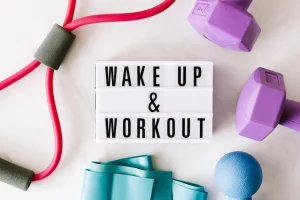How to Stay Hydrated and Drink More Water


How to Stay Hydrated and Drink More Water


Introduction
Staying hydrated is essential for maintaining good health and overall well-being. Our bodies rely on water for numerous vital functions, including regulating body temperature, aiding digestion, flushing out toxins, and maintaining healthy skin. Despite its importance, many people struggle to drink an adequate amount of water each day. In this article, we will provide you with a comprehensive guide on how to stay hydrated and drink more water, ensuring your body gets the hydration it needs.
1. Understand the Importance of Hydration
Before we delve into the strategies to increase water intake, let’s first understand why hydration is crucial for our bodies:
1.1. Optimal Body Functioning
Water is a fundamental component of our cells, tissues, and organs. It helps maintain the balance of bodily fluids, which is essential for optimal functioning. Proper hydration supports cardiovascular health, brain function, joint lubrication, and nutrient absorption.
1.2. Energy Boost
Dehydration can lead to fatigue and a decrease in energy levels. Staying hydrated keeps you energized throughout the day, improves cognitive function, and enhances physical performance.
1.3. Healthy Skin
Adequate hydration plays a vital role in maintaining healthy, glowing skin. Water helps to moisturize the skin, keep it supple, and reduce the appearance of wrinkles and dryness. It also assists in detoxification, flushing out impurities that can contribute to skin problems.
1.4. Proper Digestion
Water aids in digestion by breaking down food, facilitating the absorption of nutrients, and promoting regular bowel movements. It helps prevent constipation and supports a healthy digestive system.
1.5. Temperature Regulation
Water acts as a natural coolant for the body. It helps regulate body temperature by enabling the release of heat through sweat. Adequate hydration is particularly important during hot weather or physical activity to prevent overheating and heat-related illnesses.
2. Determine Your Water Intake Needs
Now that you understand why hydration is important, it’s crucial to determine your daily water intake needs. While the general recommendation is to drink at least eight 8-ounce glasses of water per day (about 2 liters or half a gallon), individual water requirements may vary based on factors such as age, weight, activity level, and climate. Consider the following factors when determining your water intake needs:
2.1. Activity Level
If you lead an active lifestyle or engage in intense physical activity, you may need to consume more water to compensate for the fluids lost through sweat. Drink additional water before, during, and after exercise to maintain hydration.
2.2. Climate
Hot and humid climates can increase your body’s water loss through sweating, making it necessary to increase your water intake. Additionally, high altitudes can contribute to increased water loss due to increased respiration rate and lower humidity levels.
2.3. Medical Conditions
Certain medical conditions, such as kidney stones or urinary tract infections, may require increased water consumption. Consult your healthcare provider for specific recommendations tailored to your condition.
2.4. Pregnancy or Breastfeeding
Pregnant or breastfeeding women require additional fluids to support their own hydration and the needs of their growing baby. Consult with your healthcare provider to determine the appropriate water intake for this stage.
3. Tips to Increase Water Intake
Now that you have determined your water intake needs, let’s explore effective strategies to help you drink more water and stay hydrated:
3.1. Carry a Water Bottle
Invest in a reusable water bottle and carry it with you wherever you go. Having water readily available will serve as a reminder to drink more frequently. Choose a bottle with a capacity thatsuits your daily water intake goals, and opt for BPA-free materials for your health and the environment.
3.2. Set Reminders
Incorporate water-drinking reminders into your daily routine. You can use phone alarms, calendar alerts, or specialized apps to prompt you to drink water at regular intervals. Set reminders to drink water upon waking up, before meals, and throughout the day to stay on track.
3.3. Flavor Your Water
If plain water seems dull to you, try infusing it with natural flavors. Add slices of lemon, cucumber, mint, or berries to enhance the taste and make drinking water more enjoyable. You can also experiment with herbal teas or flavored water packets that contain no added sugars or artificial sweeteners.
3.4. Create a Water Drinking Schedule
Establish a water drinking schedule to ensure you consume water consistently throughout the day. For example, you can aim to drink a glass of water upon waking up, before each meal, and before going to bed. Having a schedule in place helps you form a habit and ensures regular hydration.
3.5. Use a Straw
Using a straw can make drinking water more effortless and enjoyable. It may also encourage you to drink larger quantities in a shorter period. Opt for reusable straws made of materials like stainless steel or silicone to reduce waste.
3.6. Monitor Your Intake
Track your daily water intake using a journal, a mobile app, or even smart water bottles that automatically track your consumption. This will help you stay accountable and identify any gaps in your hydration routine that need improvement. Seeing your progress can also be motivating.
3.7. Set Goals and Rewards
Set goals for yourself to gradually increase your water intake. For example, start by adding an extra glass of water each day until you reach your target. Celebrate milestones by rewarding yourself with non-food-related treats, such as a relaxing bath, a new book, or a day off from your usual responsibilities.
3.8. Drink Water Before Meals
Drink a glass of water before each meal. Not only does this help increase your water intake, but it can also aid digestion and promote a feeling of fullness, preventing overeating. It is especially beneficial when trying to manage weight or maintain a healthy diet.
3.9. Keep Water Easily Accessible
Place water in convenient locations, such as your desk at work, bedside table, or in your car. When water is within reach, you are more likely to drink it. Prepare a filled water bottle the night before or keep a pitcher of water in the fridge for quick access throughout the day.
3.10. Opt for Water-Rich Foods
Incorporate water-rich foods into your diet. Fruits and vegetables like watermelon, cucumbers, oranges, strawberries, grapes, and celery have high water content and can contribute to your overall hydration. Snack on these foods throughout the day to supplement your water intake.
3.11. Drink Water with Every Snack
Make it a habit to drink a glass of water with every snack you consume. This not only helps increase your water intake but also aids in portion control. It can prevent mindless snacking and ensure that you are nourishing your body with both water and wholesome snacks.
3.12. Replace Sugary Drinks with Water
Swap sugary drinks like soda, energy drinks, and sweetened beverages with water. Not only will this reduce your calorie intake, but it will also improve your hydration. If you find it challenging to give up sugary drinks entirely, gradually decrease your consumption and replace them with healthier alternatives such as herbal tea or infused water.
3.13. Drink Water During ExerciseStaying hydrated during exercise is crucial for performance and recovery. Drink water before, during, and after your workouts to replenish the fluids lost through sweat. The American Council on Exercise (ACE) recommends drinking approximately 17 to 20 ounces of water two to three hours before exercise, 7 to 10 ounces every 10 to 20 minutes during exercise, and an additional 8 ounces within 30 minutes after exercise.
3.14. Make Water Fun
Get creative with your water consumption. Infuse water with fruits, herbs, or even try making flavored ice cubes. Experiment with different combinations to find what you enjoy the most. You can create refreshing combinations like lemon and mint, cucumber and lime, or strawberry and basil. By adding natural flavors, you can enhance the taste of water and make it more appealing.
3.15. Educate Yourself
Read about the benefits of staying hydrated and the risks of dehydration. Understanding the impact of water on your overall health can motivate you to prioritize hydration. Educate yourself about the signs of dehydration, such as dry mouth, dark urine, fatigue, and dizziness. Knowing the risks can serve as a reminder to drink water regularly and take care of your body’s hydration needs.
Conclusion
Drinking an adequate amount of water each day is essential for maintaining optimal health and well-being. By implementing the strategies outlined in this article, you can stay hydrated and increase your water intake. Remember to determine your individual water needs, set goals, and incorporate reminders into your daily routine. With these simple steps, you’ll be on your way to enjoying the benefits of hydration and maintaining a healthy lifestyle. Stay hydrated, stay healthy!







